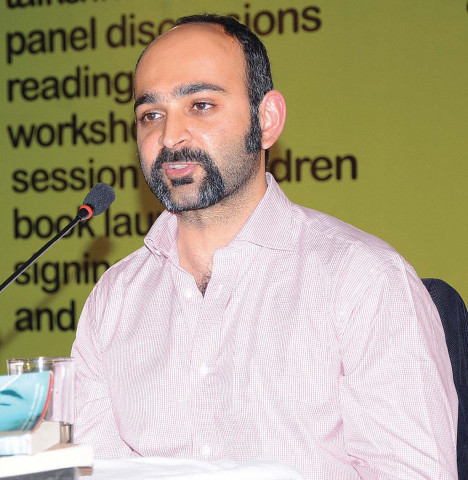Mohsin Hamid: The road less travelled
Novelist Mohsin Hamid came back to Pakistan recently. Is home still where the heart is?

Hamid is one of the few well-known Pakistanis living abroad who decided to return to Pakistan recently. Although he spent practically half his life abroad, Hamid would return to Pakistan, where his family is based, with touching regularity. “This place is home. I cannot forget it. It’s under my skin... I find Pakistan beautiful, heartbreaking,” he says. While he was studying at Princeton University and later at Harvard Law School, Hamid would come back to Pakistan every year, and he spent several months a year in Pakistan even while he was working abroad later in life.
And is he nostalgic for all that has changed in the country and in Lahore? “The pace [of life] has accelerated. I like the pace slow,” he says. “But I’m also one of those people who don’t want things to stay the same forever. I’m not obsessed with that. The experience of being alive is to watch change.”
And amid all the violence he has come back to, not to mention the carnage Lahore has seen lately, Hamid displays the faith so characteristic of his fellow countrymen. He believes the country has a lot of potential it can live up to. For Hamid, the idea is to find a way for very different people to live together in peace in Pakistan. “It’s more about building a system that allows (people) to flourish,” he says, citing the US as an example.
Hamid doesn’t restrict himself to fiction in order to get his ideas across. His essays, mostly comments on Pakistani politics and society, have appeared in foreign publications like The New York Times and The Independent, and in local newspapers, too.
His writing and articles are both laced with his perceptions of Pakistan’s current situation, but both forms of writing take different tones. His fiction is arguably darker than his non-fiction, which is often sunnily optimistic.
“To be clear, I am critical in my articles,” says Hamid. “They show nuggets of positivity inside a tough picture. The overall picture is not fantastic, I don’t claim it is,” he says.
“There is self-criticism in my books — an attempt to look honestly at what is. There are sad and terrible but also positive things in life. My novels also have optimism and beauty. They are a balance of the two things,” he says.
“I think my stories are hopeful. Part of the job of a novel is to make you think.” Writing an article is a lot more straightforward. “An article says, ‘This is what I think’,” Hamid elaborates. “I don’t do that as much in a normal process. I write, you read.”
But in writing articles, especially on the political situation at home, Hamid, like many other writers, risks being thought of even more as a representative of Pakistan, and of speaking for the country.
Hamid gets defensive, his natural charm almost tilting towards aggression, when asked if he, or other Pakistani writers, get attention precisely because they are from Pakistan — currently one of the world’s hotspots.
He agrees that Pakistani writers get attention because of that factor, but emphasises that the attention is partly because of the fact that Pakistani writing is very good. “People read Pakistani writing to discover what the country is about, but then continue to read because the writing is good.”
And do these writers in any way represent Pakistan? “No one is a representative in that sense. I’m just a guy who tells stories. The idea that the Pakistani writer is somehow exploiting the situation in the country is borne out of jealousy. The notion of exploitation is a pernicious one. If the writers were doing that to make money, well let me tell you that any writer would make much more money doing something else.”
Hamid bristles when asked what he himself represents. “Why would anyone think I’m speaking on behalf of the state?” he asks. “Writers don’t speak for the state and nobody expects them to do that.”
“I just write to express what I’m feeling,” he says. “That’s the motivation for most writers. The writer’s duty is to be honest to himself... to do work that endures.”
Published in The Express Tribune, Sunday Magazine, March 13th, 2011.



















COMMENTS
Comments are moderated and generally will be posted if they are on-topic and not abusive.
For more information, please see our Comments FAQ